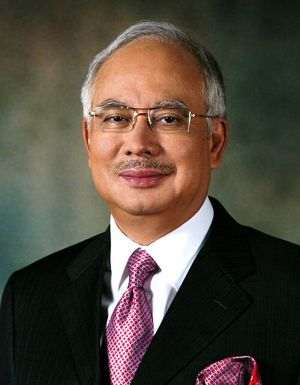In 2020, in Romania, the pandemic triggered by Covid19 highlighted the vulnerabilities of the public (state) health system both at the level of medical units and at the national level. I am thinking of the precarious medical infrastructure, not adapted to the current challenges, the lack of basic medical supplies, the insufficient number of doctors and nurses, the deficiencies in the management of medical units, colonized by political parties, as well as the underfunding of the healthcare system.
All of the above had a negative impact on the health of the population, at the individual level, through limited access to traditional medical services, due to the concentration of resources to stop the pandemic, and at national level, through worsening indicators of morbidity and mortality.
Therefore, the government program for the years 2021-2024 provides for reforms to achieve a healthcare system that offers health care services at European standards, thus contributing to increasing the life expectancy of the population. Currently, at birth, a Romanian citizen has a life expectancy lower by almost 5 years for women and over 6 years for men, compared to the European average.
Hereinafter, I would like to draw the attention of specialists to the fact that, before any reforms, the health system must be based on sound economic foundations, with pointing out three essential problems that the system is faced with. Neglecting these foundations will make the health care system non-viable, even if were to receive more medical and financial resources.
The healthcare economics teaches us that the resources allocated to the health system will always be limited in nature, as they compete with other elements that require public resource such as, for example, education, justice, public order and citizen safety, defense, etc.
Therefore, there is a need for clear answers on how the health system meets the following criteria: the effectiveness of the system, i.e. the ability to ensure the access of every Romanian citizen to the health care they need; system efficiency - obtaining maximum results at a certain level of resources used; fairness of the system, through medical care according to a person's needs and not their ability to pay.
Health is not just a matter for the doctor and the patient. The health of the population is a public good, with an important impact on the development of the country. Therefore, the state has an important role in the proper functioning of the health system: through its function of regulating the activity of healthcare and health insurance; through the public sector (state) provider of medical services and compulsory health insurance; through national health programs for people with chronic diseases (diabetes, cancer, etc.) or with disabilities; by funding medical research and education.
At the same time, it is necessary for the state to regulate the transparent and equitable mechanisms through which the limited level of resources will be balanced with the increasing demand, qualitatively and quantitatively, for healthcare services. This demand is under the pressure of the action of three forces: the change of the demographic structure in Romania, by increasing the share of the elderly, with much higher requirements for services and medical expenses, compared to young people, whose share is decreasing; the progress of medical equipment, therapies and medicines; the justified expectations of the population that it receive the best medical care.
The first issue, also highlighted in the government program, is the development of medical prevention services to reduce deaths from treatable diseases. There is an accepted economic truth: it is less expensive to prevent disease than to treat it.
The state of health of each person and of the population as a whole is determined not only by the quality of the health care system, but also by other factors. Thus, the lifestyle adopted by each person is as important as the act of health care, namely diet and obesity, inclination towards sedentary lifestyle, attitude towards the risks they assume, such as smoking, alcohol consumption, practicing sports with a risk of physical injury, etc. There are other important factors for health that depend mainly on the action of local communities and the government, such as access to drinking water and sewerage systems, management of household and industrial waste, the degree of air and soil pollution, etc.
Therefore, it is necessary that the prevention activity include both the healthy and the sick (in order not to aggravate the disease and lead to death). Or, for the adoption of a healthy lifestyle, health education is insufficient. There is also a need for economic motivation, which are missing in the current health and social insurance system in Romania.
I believe that the family doctor and the health insurance institution could make each person responsible for adopting a healthy lifestyle, if they monitored not just the sick , but also the healthy ones in order to assess their health (through periodic testing) and their lifestyle.
With over 17 million beneficiaries of health insurance, via the effect of the law, the National Health Insurance Department cannot follow the lifestyle of every person who does not yet resort to medical services or their evolution when they get sick. Therefore, it is time for the monopoly of compulsory health insurance (by the effect of the law) to be abolished, by forming a competitive health insurance market, with the granting of the right of access of private health insurance institutions to compulsory health insurance and the right of the option of the insured to choose an insurance institution or another. The National Health Insurance House could keep the responsibility of insuring vulnerable persons - at risk of poverty, with disabilities, etc. - for which the state will contribute to the financing of medical services.
When a person has an unhealthy lifestyle and does not want to change it, insurance institutions can correct that behavior by differentiating the size of health insurance premiums, thus helping to reduce illness and death due to treatable illnesses.
Through an effective prevention activity, it will be possible to reduce the number of patients who arrive in critical condition in hospitals, reducing the share of health expenditures concentrated in hospitals, which in Romania is much higher than the European average.
The second key economic issue is the allocation of financial resources to the health system through compulsory health insurance contributions, mainly by people with employment contracts (about 65% of total health funds before the pandemic), the contribution of the country's budget to the financing of national health programs (about 13%), direct payments made by individuals (about 21%).
European Union statistics show that Romania stil ranks last in terms of both the percentage of gross domestic product allocated to healthcare and the level of healthcare expenditure per capita, although the funds allocated to the sector have increased from year to year . But what economists know, and the population feels, is that simply increasing the financial resources allocated to an economic and social sector does not bring expected results if that sector does not operate on sound economic foundations.
In Romania, the communist concept that the health sector is "unproductive" has been overcome. Investing in health is an investment in human capital, as is investing in education. However, there are still some prejudices that remain.
The Romanian Constitution (art. 34, paragraph 1) provides that the right to health care is guaranteed. For many people, this guarantee is synonymous with free healthcare services when they are ill, regardless of the fact that any medical act has a cost and therefore it is necessary that said cost be fully funded. Of course, it is also necessary to comply with the requirement of efficient use of material, human and financial resources allocated to healthcare, both by consumers (people in need of medical care should not exploit the gratuity) and medical service providers (clinics, doctors, suppliers and drug distributors, etc., which should not overcharge and avoid wasting resources).
The first refers to the destruction of the base principle which any kind of insurance operates on: many ensure themselves against a risk, by paying an insurance premium, and the few that experience the risk that they ensured themselves against are compensated for the expenses incurred or losses suffered, without being forced to go into bankruptcy or changing their lifestyle, due to the major expenses incurred in restoring their health. In the case of the compulsory health insurance in Romania, we are in a situation where 17 million people are insured, but only about million people pay healthcare contributions. The remaining 11 people - children, retirees and others - are exempt from paying those contributions. Had the operating principle of insurance been followed, for the 11 million, the state should have borne from the public budget the healthcare contribution and, in that case, through the tripling of the number of ensured, a certain reduction of the percentage of the required healthcare contribution would have been possible.
In the current situation, there is no economic link between the compulsory health insurance contribution of 10% of salary income and the cost of medical services for two reasons. The first refers to the destruction of the basic principle on which any type of insurance operates: many insure themselves against a risk by paying an insurance premium, and few who incur the risk for which they have been insured are compensated for the expenses or losses suffered, without having to go bankrupt or change their lifestyle due to high health costs. In the case of compulsory health insurance in Romania, we are in a situation where over 17 million people are insured, but health insurance contributions are paid by only about 6 million people. The remaining 11 million people - children, retirees and others - are exempt from paying these contributions. If the principle of insurance operation had been respected, for the 11 million, the state would have had to bear the health insurance contribution from the country's budget and, in this case, by tripling the number of insureds, a certain reduction would have been possible. of the percentage of the health insurance contribution.
The second cause concerns the relationship between the cost of medical services and the size of the health insurance contribution. An economic relationship should be built as follows: each health insurance institution will set the level of the insurance premium, in absolute amount (and not as a percentage), depending on the statistical structure of diseases specific to the population, the probability of diseases occurring, as well as the cost of medical services, negotiated with those that provide them, within the existing legislative framework (for example, the obligation of health insurance institutions not to make a selection of persons accepted for insurance according to the health risk they present, as well as the obligation of persons with low health risks to be ensured, according to the principle of solidarity between low-risk and high-risk persons). The financial balance between the insurance premium and the cost of medical services is dynamic and changes in relation to the shifts in the structure of diseases, the probability of occurrence, the cost of medical services.
Given that the health insurance contribution is set as a percentage of income, the financial balance should be made under the influence of the political factor (which sets the percentage of health insurance contribution and / or changes the amounts allocated from the state budget), going from the recognition of an existing imbalance. In reality, as a rule, the system is balanced non-transparently by reducing access to medical services, through the delays in their financing and by failing to cover the real cost of the medical act, especially surgeries.
The third important economic problem of the health system is the organization of the medical services market. In Romania, there are providers of medical services that are both state-owned (institutions that are under organizational and financial rules of the budgetary type), and in the private one, which operates on a profit basis; there are also private, non-profit health care providers.
The emergence of the private sector in the health care activity, has shown that it is possible to provide quality medical services in Romania, in an efficient manner, under the pressure of competition and discipline demanded by the motivation to earn a profit on the invested capital.
The main problem of the medical services market is that the state public sector is not on an equal footing with the private one.
The state health sector does not have the requirement to compete and be profitable. There are many examples of resource waste: supplies of medical equipment and medical supplies at uncompetitive prices, inadequate maintenance of medical infrastructure, excessive use of expensive drugs to the detriment of generics, motivated by incentives provided by drug distributors, high administrative costs, fraud and corruption.
Compared to the private sector, in the state sector the cost of medical services does not include the costs of capital investments, nor other operating costs, which, as a rule, are borne by the state budget and local budgets. These underestimated costs are, however, used as a benchmark by the National Health Insurance Department for the settlement of services provided by the private sector.
This is also one of the reasons why, in the absence of clear regulations, a kind of "selection" is practiced by medical staff working in both the state and private sector, by "guiding" patients to a sector or another depending on their ability to pay and the difficulty of the medical intervention.
This phenomenon is also made possible by the fact that the medical services market is characterized by a strong information asymmetry. A patient has two important questions to which they want answers: what is wrong with their health (diagnosis) and what they must do to return to normal health (therapy). The person holding the answer to those questions is the doctor. And the answers they give to the two questions must indicate what is best for the patient, rather than cater to the interests of the health care provider or health insurance institutions.
Therefore, I believe that in the medical services market, it is necessary to expand the scope of competition and of profit as a motivation to better meet the criteria of effectiveness, efficiency and fairness: in the state sector should remain emergency hospitals, including the SMURD emergency service, the medical clinics of the state universities, the medical institutes that undertake research activities, and for the rest of the medical units to either be privatized or become privately managed.
It is also necessary that the state sector also bear all the costs of investment and operation, and, on that basis, that equality be established with the private sector in terms of the level and means of financing of medical services. Under those conditions, in a relatively short time, the private sector could alleviate the pressure on the public sector by treating patients who cannot turn to the private sector due to lack of money.


















































